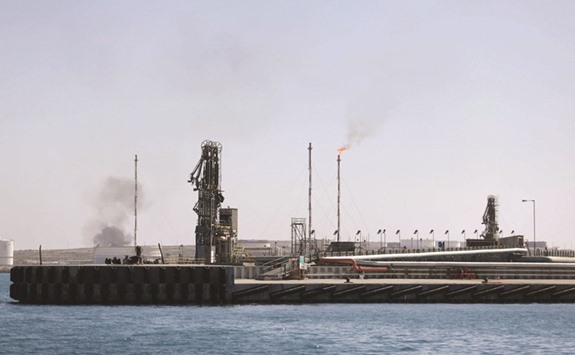A view of the industrial zone at the oil port of Brega, Libya. Opec’s decision to grant Libya and Nigeria an exemption from curbing output was probably the right call, according to Bloomberg. Production from both countries in the past three months has remained relatively stable, according to estimates from the International Energy Agency. In December, their combined output was 2.01mn bpd compared with 1.94mn in October. While Libya increased production by 110,000 bpd over that period, Nigeria pumped 40,000 bpd less amid a strike by Exxon Mobil Corp workers that disrupted flows, the IEA said. Libya’s recovery came as major fields restarted following the reopening of crude export terminals. Yet the IEA warned the rebound in the North African nation’s output “may prove fragile” due to the “twin challenge of
enhancing security and raising cash to fund urgently needed infrastructure repairs.” Opec’s November 30 agreement to curb output by 1.2mn barrels excluded both countries, where production has been curbed by internal violence and sabotage. Oil prices have climbed by about 18% since that deal was struck.

.
